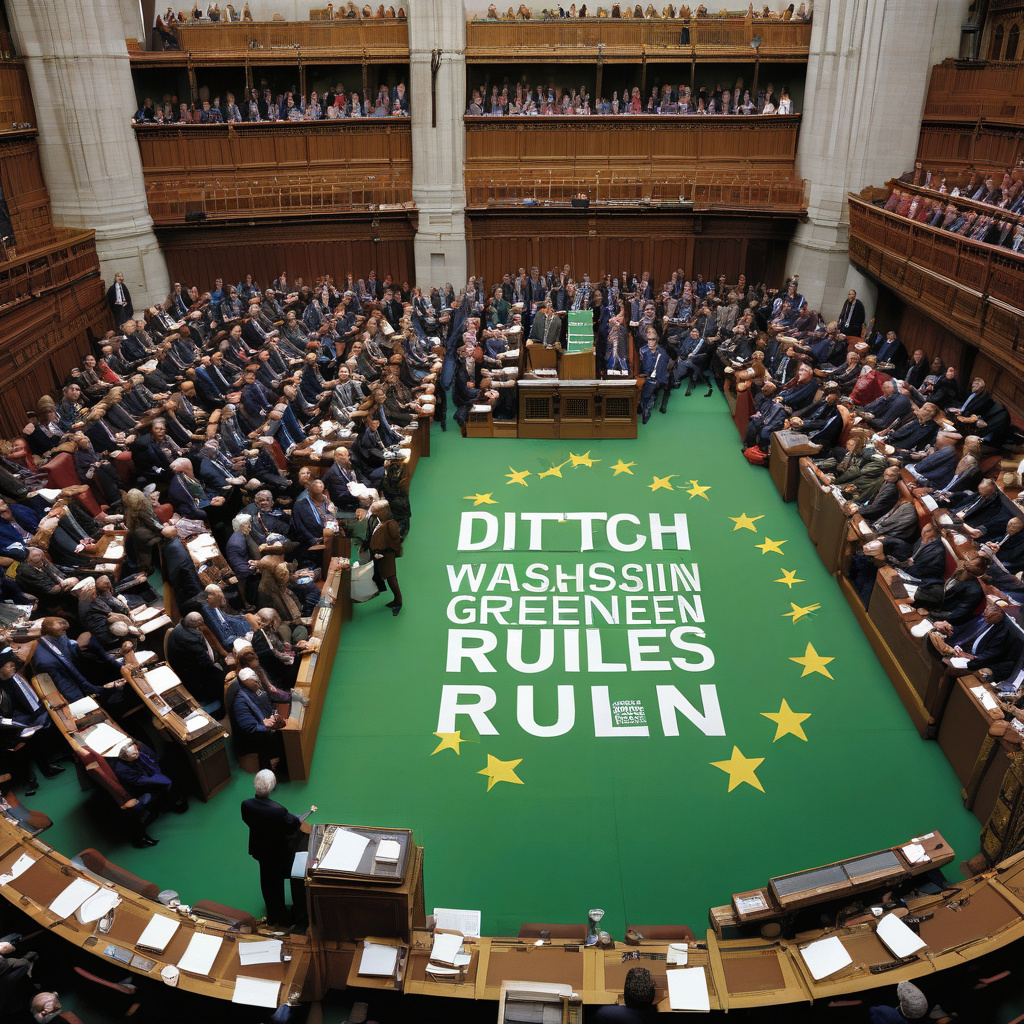EU Ditches Plans for Anti-Greenwashing Rules
The European Commission’s recent decision to abandon the implementation of regulations aimed at combatting greenwashing has sparked a wave of controversy and debate within the business and environmental sectors. The proposed rules would have mandated companies to provide evidence supporting their environmental claims, ensuring transparency and accountability in green marketing efforts. However, following intense pressure from conservative lawmakers, the EU has chosen to backtrack on this initiative, raising concerns about the future of sustainable practices in the corporate world.
Greenwashing, the deceptive practice of promoting a misleading perception of environmental responsibility, has become increasingly prevalent as consumers demand eco-friendly products and services. Companies often leverage vague or unsubstantiated environmental claims to attract environmentally conscious consumers, without making substantial efforts to reduce their carbon footprint or adopt sustainable practices. This misleading marketing tactic not only erodes consumer trust but also undermines genuine efforts to address pressing environmental issues such as climate change and resource depletion.
The European Commission’s decision to abandon the anti-greenwashing rules represents a missed opportunity to hold businesses accountable for their environmental impact and ensure the integrity of green marketing efforts. By requiring companies to substantiate their environmental claims with verifiable data and evidence, the regulations would have incentivized transparency and honesty in sustainability reporting, enabling consumers to make informed choices and support genuinely eco-conscious brands.
Conservative lawmakers, however, have argued that the proposed regulations would impose unnecessary burdens on businesses, stifling innovation and economic growth. By requiring companies to invest resources in verifying their green claims, critics claim that the rules would hinder competitiveness and increase compliance costs, particularly for small and medium-sized enterprises. Additionally, opponents of the regulations argue that existing consumer protection laws are sufficient to address instances of greenwashing, eliminating the need for additional regulatory measures.
Despite the European Commission’s decision to backtrack on the anti-greenwashing rules, the debate surrounding corporate sustainability and environmental accountability is far from over. As consumers become increasingly discerning and demand greater transparency from brands, companies will face mounting pressure to demonstrate their commitment to environmental stewardship authentically. In this context, businesses that prioritize sustainability and adopt genuine eco-friendly practices are likely to gain a competitive edge and build long-term customer loyalty.
Moving forward, industry stakeholders, policymakers, and environmental advocates must collaborate to develop effective strategies for combating greenwashing and promoting a culture of transparency and accountability in the business world. From implementing industry-wide certification standards to launching consumer awareness campaigns, concerted efforts are needed to ensure that green marketing aligns with tangible environmental actions. By holding businesses to high standards of sustainability and ethical conduct, we can create a marketplace where authenticity and integrity drive meaningful change for the planet.
In conclusion, while the European Commission’s decision to abandon the anti-greenwashing rules may have stalled regulatory efforts to curb deceptive environmental marketing practices, the conversation around corporate sustainability and transparency continues to evolve. As businesses navigate the complex terrain of green marketing and consumer expectations, prioritizing authenticity and accountability remains crucial for building trust and driving positive environmental impact. By embracing a holistic approach to sustainability and upholding rigorous standards for green claims, companies can not only differentiate themselves in the marketplace but also contribute to a more sustainable future for all.
EU, Greenwashing, Sustainability, Transparency, Accountability












